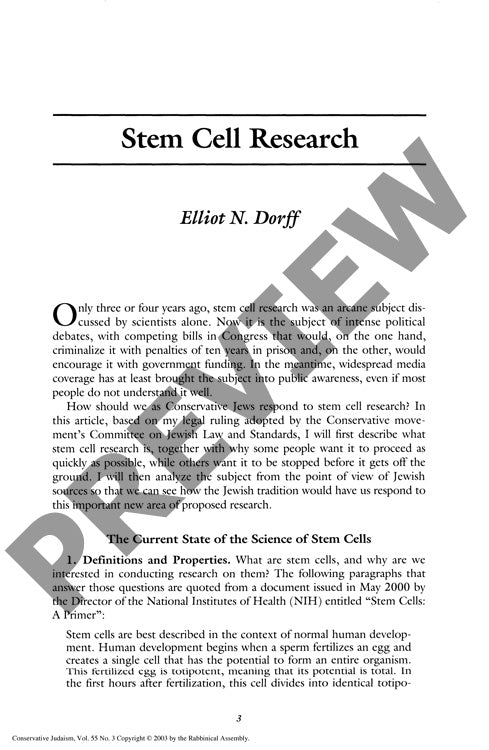Stem Cell Research
Couldn't load pickup availability
Jewish law not only permits but may require stem cell research as a moral imperative, particularly given its potential to save countless lives through breakthrough medical treatments. By analyzing traditional Jewish theological principles and halakhic (legal) sources, this examination reveals how Conservative Judaism approaches the complex bioethical questions surrounding embryonic stem cell research. The investigation covers various stem cell sources, including aborted fetuses, frozen embryos from in vitro fertilization procedures, and potential future methods such as somatic cell nuclear transfer. According to Talmudic sources, embryos within the first forty days of gestation are classified as "simply water" rather than human life, and those outside the womb during the first fourteen days lack sufficient organizational complexity to warrant full moral status as human beings. The Jewish principle of pikuah nefesh (preservation of human life and health) creates a religious obligation to pursue medical advances that could cure diseases such as Parkinson's, diabetes, and spinal cord injuries. Within appropriate halakhic parameters, particularly using frozen embryos already destined for disposal from fertility treatments, embryonic stem cell research represents "an enormous good at no human price." These findings demonstrate how Conservative Judaism can actively support stem cell research while maintaining fundamental respect for human dignity and the sanctity of life.

More Information
-
Physical Description
-
Publication Information
Published 2003
ISBN
-
Publication Credits
Elliot Dorff

